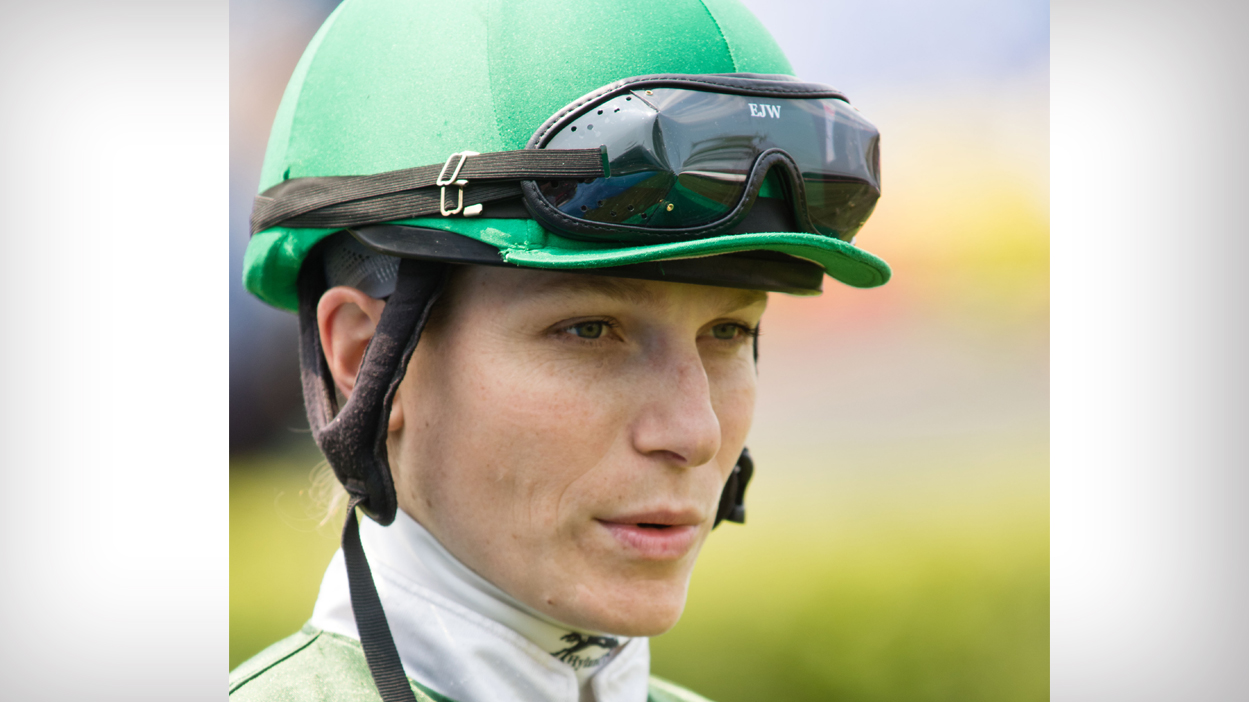When the gate opened on her very first race, in 2004, Emma-Jayne Wilson had already built up a huge fan following. It’s only continued to grow since then.
The Ontario native wowed horsepeople and horse racing followers immediately, earning rave reviews for her skills in the saddle and bond with those in the grandstand seats.
Wilson received the Sovereign Award for top apprentice in 2005 and 2006, and earned the Eclipse Award in the same category in 2005.
Inducted into the Brampton Sports Hall of Fame in 2006, Wilson was also named one of the most influential women in sport by the Canadian Association for the Advancement of Women and Sport and Physical Activity.
In 2007, she teamed with Mike Fox to win the Queen’s Plate, becoming the first female rider to win the race.
Her successes, however, aren’t confined to only Woodbine and Canada.
Wilson, as captain, won the 2015 Shergar Cup at Ascot with teammates Sammy Jo Bell and Hayley Turner, marking the first victory for an all-female side in the event.
The 38-year-old, who received the 2018 Avelino Gomez Memorial Award (contributions to horse racing on and off the racetrack), has 1,543 career wins.
A sure sign of Wilson’s popularity came in the aftermath of a spill last September at Woodbine. Out of action for two months with a broken left clavicle and fractures to her right hand, her recovery and return to racing garnered widespread coverage in the media and on social media.
“When you watch racing or any sport, you feel as though you can connect with those athletes. I’ve really enjoyed (social media) because it gives people a direct line to send me those well wishes or encouraging words. I read them all. It’s really inspiring.”
What are the most critical challenges facing the industry in Canada today?
“I don’t want this to sound romantic or weird, but as a sport, we need more love. We need the fans, and we need the passion. We don’t have the love that other big sports, like the NFL and NHL, benefit from. They get the attendance, the social media following, and the support of the fans. If we had more love and passion from people – I’m not saying we don’t have that from the fans we have now – it would really help support our sport.”
What needs to change about the industry in the next 5-10 years?
“The changes we need to focus on are ones that build horse racing and the fan base. Everything about racing needs to build… not just be simplified or restricted. One thing I can speak to more specifically as a jockey is whip use. There are all kinds of changes coming, but instead of implementing changes that simplify the rules, it should be done in a more holistic, bigger, more accountable approach. For example, top-of-the-line cameras that could help with the adjudication and better enforcement of urging rules – that’s one idea. There is so much new technology out there that would be beneficial for the sport. It would further support the integrity of racing. There are so many options out there, but the gist is that the changes we make must build racing.”
How can you help affect that change?
“We all need to be willing to participate, encouraging the discourse on topics that affect horse racing. As a jockey, I can continue to participate in the process. As much as I’m just one player in the game, we all have to take responsibility for the game we love. We want racing to be thriving. We have to support the owners and the breeders – they are key to the industry. We can’t build racing without all of the players’ efforts.”
Where do you see the thoroughbred industry in Canada in 10 years?
“I know that horse racing people are passionate about the game. I think that’s what we need to cultivate – our own passion into showing other people what is so great about this game. We need to show people the love we have for the sport so that they can love it too. If we can all work together and focus on all of the challenges, where we are willing to make sacrifices and willing to make changes, then I think we’ll be able to have racing thriving.”


